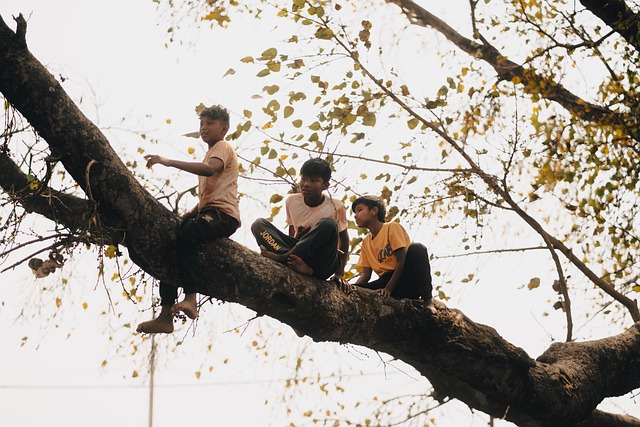Oregon family law offers a robust framework for navigating divorce, custody, and welfare proceedings, prioritizing the best interests of minors. By ensuring access to resources and empowering advocates, this system fosters positive outcomes for vulnerable youth in foster care or adoption. Through tailored support, mental health services, and stable housing, Oregon family law breaks barriers and promotes holistic well-being for children in need. Advocates collaborate with professionals and community organizations to challenge injustices and shape policies prioritizing Oregon's most vulnerable youth. A strong community network further supports these efforts, amplifying awareness and care for at-risk youth within the state's welfare system.
In Oregon, the welfare system plays a crucial role in safeguarding vulnerable children. This article delves into the multifaceted approach needed to advocate for these young lives, exploring Oregon’s unique family law framework and its impact on child welfare. We analyze the challenges faced by children in care, from systemic barriers to individual needs, and propose strategic interventions. Effective representation and community collaboration are key; Oregon family law professionals have a vital role in ensuring positive outcomes for vulnerable youth, fostering a brighter future for all.
- Understanding Oregon's Welfare System and its Impact on Children
- The Role of Oregon Family Law in Child Welfare Advocacy
- Identifying and Addressing Challenges Faced by Children in Care
- Strategies for Effective Representation and Defense of Vulnerable Youth
- Building Community Support and Collaboration for Positive Change
Understanding Oregon's Welfare System and its Impact on Children

The Role of Oregon Family Law in Child Welfare Advocacy

Oregon family law plays a pivotal role in advocating for children within the state’s welfare system. This legal framework is designed to protect and promote the best interests of minors, ensuring they receive the necessary support and resources. Through various provisions and acts, Oregon family law courts work tirelessly to safeguard children’s rights and well-being, especially those involved in foster care or adoption proceedings.
The laws emphasize the importance of stability, permanent placements, and nurturing environments for vulnerable youth. They provide guidelines for effective case management, allowing professionals to navigate complex situations and make informed decisions. By fostering a comprehensive approach, Oregon family law contributes significantly to positive outcomes for children in need, offering them a chance at a brighter future.
Identifying and Addressing Challenges Faced by Children in Care

Children in the welfare system face unique challenges that often require tailored support and advocacy. In Oregon, where the focus on family law is crucial, identifying these issues is the first step towards improvement. One significant challenge is the instability of their living situations; frequent moves can disrupt education and social development. Moreover, many children in care struggle with emotional and behavioral problems, requiring mental health services and therapeutic interventions to help them cope with trauma and adversity.
Advocates play a vital role in ensuring these children receive the necessary support. By working closely with Oregon family law professionals, child welfare agencies, and community resources, advocates can facilitate access to specialized care, educational resources, and stable housing. Addressing these challenges head-on is essential to helping these youngsters thrive and break free from the cycle of adversity.
Strategies for Effective Representation and Defense of Vulnerable Youth

Advocating for vulnerable youth in Oregon’s welfare system requires a multi-faceted approach that combines legal expertise with empathy and cultural sensitivity. Effective representation starts with understanding the complex interplay of factors affecting these young lives—from family history and trauma to systemic barriers within the child welfare system itself. Lawyers and advocates must be well-versed in Oregon family law, fostering a deep knowledge of state regulations and case precedents to ensure the best possible outcomes for their clients.
One key strategy is building strong relationships with children and youth, empowering them to share their stories and make informed decisions. Collaborating closely with service providers, social workers, and community organizations ensures a holistic approach that addresses immediate needs while also focusing on long-term well-being. By navigating the legal system with skill and compassion, advocates can help break down barriers, challenge systemic injustices, and advocate for policies that prioritize the best interests of Oregon’s most vulnerable youth.
Building Community Support and Collaboration for Positive Change

Building a strong community support network is vital for advocating on behalf of children in the Oregon welfare system. By fostering collaboration between local organizations, government agencies, and concerned citizens, positive change can be achieved. This collaborative effort allows for a more holistic approach to supporting at-risk youth, addressing their diverse needs, and ensuring they receive the best possible care and opportunities.
Community partnerships can enhance advocacy efforts by providing additional resources, expertise, and a broader platform to raise awareness about child welfare issues in Oregon family law. Through joint initiatives, such as support groups, educational programs, or fundraising events, communities can unite behind a common cause, fostering empathy and understanding for the challenges faced by children in care. This collective action ultimately empowers advocates to make significant strides in improving the lives of these vulnerable individuals.






